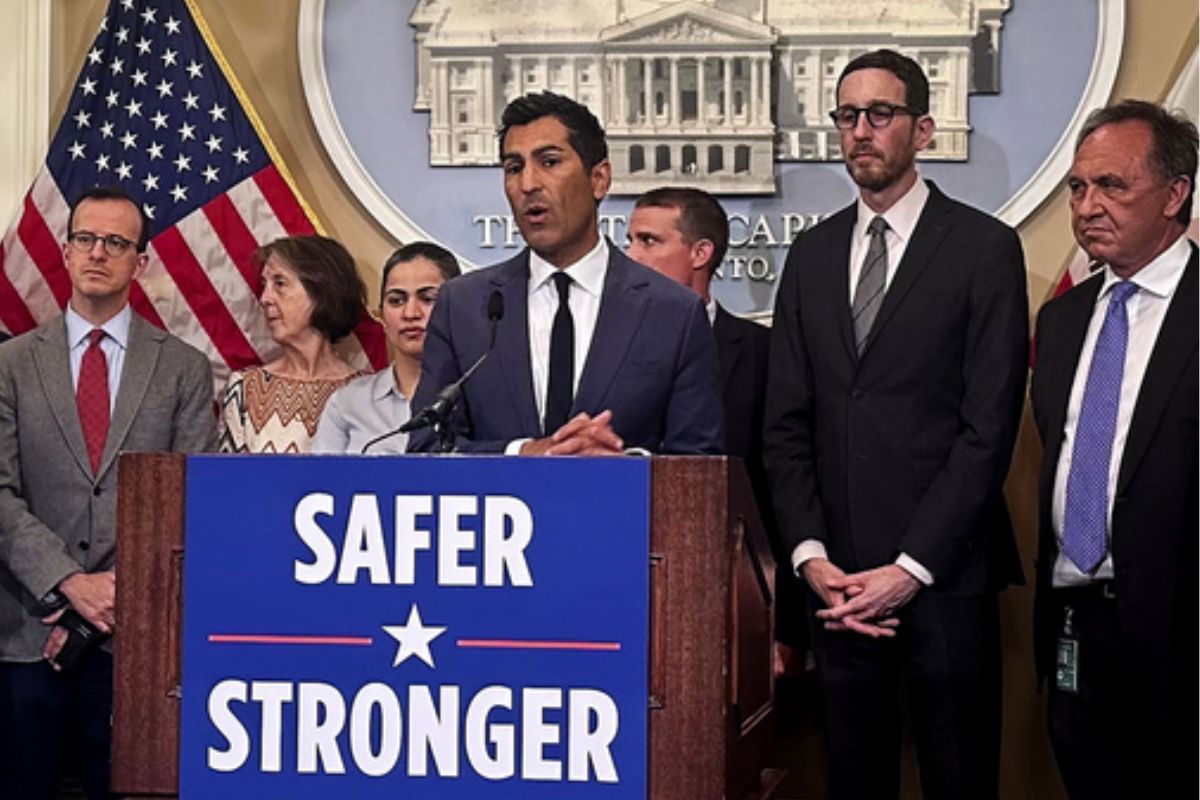With retail theft on the rise, California’s Democratic leadership is warring with a coalition of law enforcement and business groups over how to combat the problem. State legislators are working to protect progressive ideals while avoiding incarceration.
California’s Democratic leaders
The two most likely paths under consideration this year are a ballot campaign to increase punishments for repeat offenders and a legislative package geared at making it easier to prosecute professional crime gangs.
Leaders of the two campaigns have accused one other of deceiving voters and refusing to reach a deal.
Both sides acknowledge the need to crack down, particularly on large-scale thefts in which groups of individuals brazenly rush into establishments and steal things in plain sight.
Proposition 47 a progressive ballot measure enacted by voters in 2014 that downgraded certain larceny and drug possession convictions from felonies to misdemeanors in order to alleviate jail and prison overcrowding, is at the heart of the increasing political battle. This includes nonviolent property crimes, such as thefts under $950.
According to law enforcement it has made it more difficult to arrest and prosecute shoplifters. Researchers informed lawmakers that there is no evidence tying the proposition to rising violent crime rates.
Read this also – Dow Jones Futures Fall: Tesla shareholders approved a massive pay deal for Elon Musk
How are the two solutions different?
A group of district attorneys and companies, primarily backed by big box retailers, is advocating for tougher penalties for stealing and narcotics offenses. If a person has two theft convictions, stealing of any amount would be considered a felony.
Possession of fentanyl would also become a felony, and people facing numerous drug convictions would be required to seek treatment.
The ballot issue would still need to be certified by the Secretary of State before appearing on the ballot later this month.
California’s Democratic leadership, led by Gov. Gavin Newsom, wants to keep the tough-on-crime initiative off the November ballot.
They are concerned that the ballot measure’s provision will disproportionately jail low-income persons and those with substance use disorders, rather than targeting ringleaders who pay huge groups of people to steal products for resale online.
Instead, lawmakers are moving quickly to pass a legislative package of 14 legislation that would target organized online reseller scams and auto thieves as well as give cash for drug addiction counselors. These measures may become laws as early as this month.
Do the efforts conflict?
If voters pass the tough-on-crime ballot initiative, Democratic leaders want to strike most items from their own legislative package, citing potential conflicts.
Earlier this week, lawmakers were vague about how the two approaches conflicted. Later, they expressed concern that if both efforts succeed, law enforcement will be able to stack punishments and send more people to jail, resulting in mass incarceration and overcrowded jails.
According to MPs, around one-third of the items in the package could result in legal problems with the voter initiative ideas.
The ballot initiative campaign claimed that politicians were holding the measures hostage in order to break up the alliance.
Local district attorneys who supported the ballot campaign said both attempts could function together, with the ballot item superseding the legislative package in the event of a legal clash.
What happens next?
Supporters of the ballot initiative said they are still willing to engage with Democratic leadership, but will only consider ideas that involve repealing Proposition 47.
“We are still willing to meet with anyone in leadership to discuss the measure, but I do not want to compromise,” said Greg Totten, a retired district attorney and head of the ballot initiative campaign, during a news conference this week.
Newsom and Democratic leaders have until June 27 to reach an agreement to get the measure off the ballot. Meanwhile, lawmakers intend to deliver the legislative package to Newsom’s desk by next week for signature, amid rising reservations from moderate Democrats.
“When you look at the package that we put together, it’s very comprehensive and it addresses a number of details in the existing framework of the law,” Assemblymember Rick Zbur, author of a retail theft measure, said to reporters.
“It was never intended to be something that was stacked on to a ballot measure that removed the underpinnings of the basic law that we were trying to reform.”

Andrew is a New York-based markets reporter at The Wall Street , covering the latest news from Wall Street, the rise of the spot bitcoin exchange-traded funds and updates on crypto markets. He is a graduate of New York University’s business and economic reporting program and has appeared on CBS News, YahooFinance and Nasdaq TradeTalks. He holds BTC and ETH.







